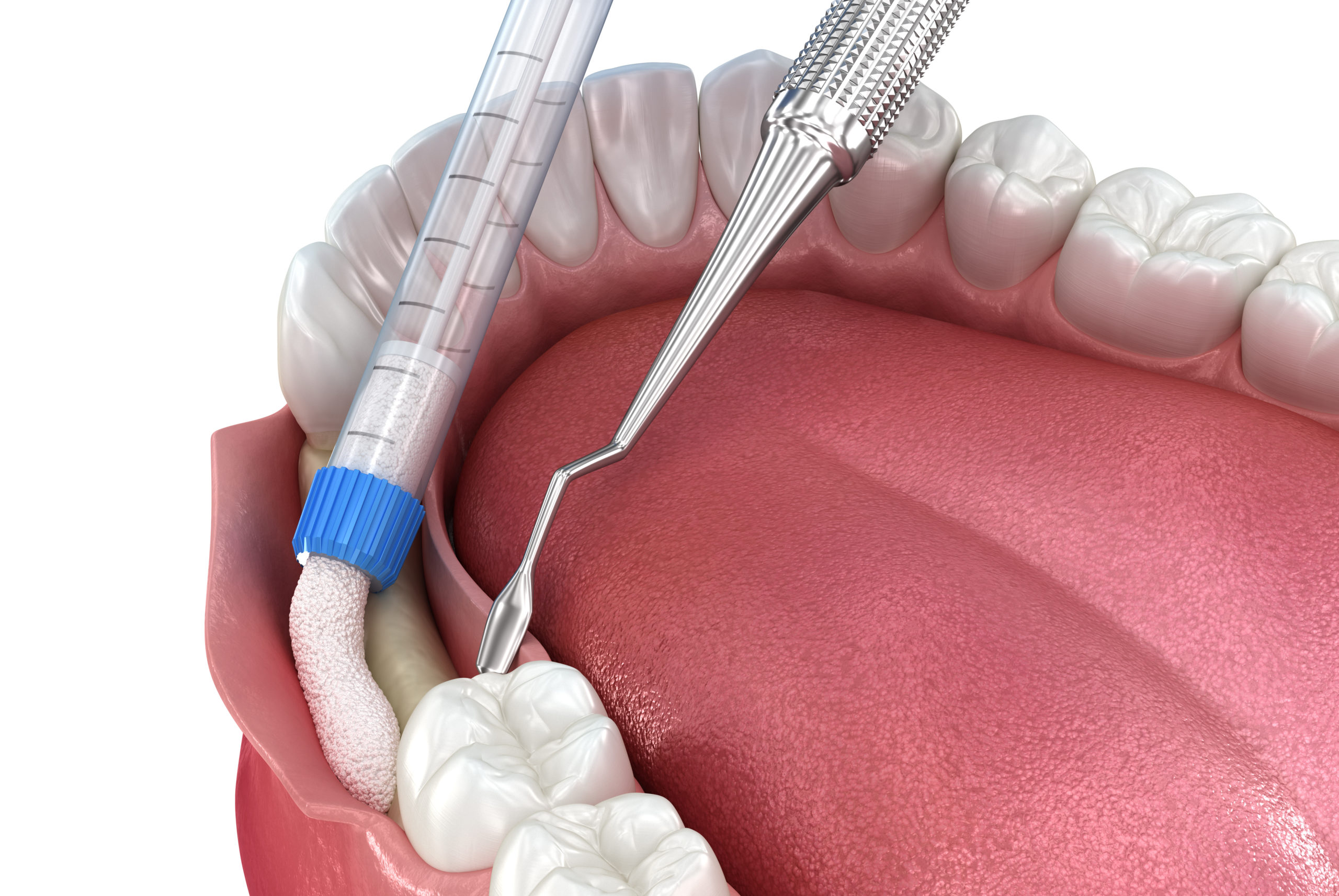An individual may look into cosmetic dentistry after tooth loss to restore aesthetics and functionality. In the past ten years, clinical prosthodontics has significantly advanced and evolved following scientific breakthroughs and patient requests and needs.
Dental implant reconstruction is quickly becoming the preferred dental restoration method for patients with lost or damaged teeth. Dental implants restore essential tooth functions like eating and biting while also providing a variety of incredible health advantages. Dental implant reconstruction also significantly improves the appearance of a broken smile.
What is a dental implant reconstruction?
Dental implant reconstruction is the surgical process of placing implants in the jawbone to support a bridge or other dental restorations, restoring the patient’s complete, healthy dentition that was lost due to accidents, tooth decay, or other dental disorders.
Dental implants are small titanium screws inserted into the jawbone that hold and support prosthetic crowns. A missing tooth can be successfully and permanently restored with dental implants. As the surrounding bone develops, the implant becomes sturdy enough to take the place of the tooth root. Since titanium is used in their construction, implants are resistant to decay, integrate well with the bone, and stop the loss of bone tissues.
Aesthetic and functional advantages of implant reconstruction include:
- restoring broken teeth’s appearance
- enhancing the ability to bite and chew
- preserving the tissue of the jaw and teeth
- preventing the loss of bone
As with any other surgical treatment, complications should be taken into account while having an implant reconstruction. Many of the issues are handled without causing significant problems. Still, they can occasionally result in dental implant failure or potentially fatal situations.
Let’s look into the most common complications you may encounter after an implant reconstruction.
- Nerve Damage
One of the most frequent issues after implant reconstruction is nerve damage. The nerves that connect each tooth to the rest of the body pass via the roots, through the gums, and into the bone. There may be severe and uncomfortable side effects if these nerves are injured during treatment.
The implant placement will almost certainly fail, and your dental and general health may suffer even more adverse effects. Utilizing cutting-edge treatment planning technologies, such as 3D cone beam scanners, to make sure the implant is placed accurately is the key to preventing nerve injury during implant reconstruction.
- Other Oral Structures are Affected
Damage to other oral structures is another frequent issue resulting from poor design in the planning phase. Implants put incorrectly have the potential to harm tooth root structures or move neighboring teeth out of alignment. In certain instances, the gums or jawbone have even sustained significant damage.
- Incorrect Implant Insertion
Your implant might be placed incorrectly by the dentist. Complications may result from issues with the placement or angle of the implant. The implant won’t correctly integrate with the bone, will be too close to neighboring teeth and hurt, or may become loose or damaged. You might need to have the implant removed or replaced if this occurs. Before obtaining a new implant, you should get a second opinion from a different dentist.
- Sinus Damage
Because of the size and structure of the sinus cavity, the bone in the upper jaw may be pretty thin. Even if the implant is appropriately positioned, osseointegration, or the fusion between the implant and jaw, might cause it to break through the jawbone. It’s crucial to keep an eye on the healing process after having one or more implant posts inserted in the top row of teeth and to contact your dentist straight away if you notice anything strange.
Following are a few possible signs of sinusitis:
- There may be discomfort, soreness, or swelling around the cheekbones, eyes, or forehead
- yellow or green nasal mucus
- a stuffy nose
- a diminished ability to smell
- nasal headaches
- toothache
- bad breath
- Fever
- Infection
An infection is the most frequent issue that develops following the placement of a dental implant. It is the most frequent problem that arises for patients after any surgical surgery. The simplest method to prevent infection is to strictly adhere to your post-operative instructions, clean the surgery site as directed, and call us at Peninsula Center of Cosmetic Dentistry as soon as you see any warning symptoms of infection, such as swelling, redness or fever.
How do you take care of your implant reconstruction?
The best approach to guarantee implant repair success is to adhere to the doctor’s aftercare instructions. You should make appointments for routine dental cleanings and examinations.
After the implants are repaired, you should refrain from eating or drinking anything hot while still numb and stick to a soft diet for at least a few days.
An implant and the tissues around it require routine cleaning, much like natural teeth. After the gums have healed, you should floss the region at least once daily and utilize interdental brushes to get to more difficult-to-reach places.
Smokers may want to consider quitting since it will decrease their chance of implant issues.
Are there any alternatives to implant reconstruction?
Although there are several alternatives to dental implant restoration, these are less and less common as long-term fixes. Some of these include:
Bridges – Bridges serve as a single tooth’s replacement. With good oral maintenance, they can last ten years. But to accommodate crowns, two healthy teeth must be shaved and contoured. The bridge across the gap is held in place by the roots of these teeth. They are difficult to floss around, which increases the risk of deterioration under the bridge.
Dentures – While partial dentures do not necessitate the contouring of healthy teeth to fill in gaps caused by missing teeth, they can result in jaw misalignment and bone loss. Additionally, they may affect the voice, causing the individual to clatter when speaking. They lack the natural appearance of other solutions. Dentures can also alter the flavor of food.
Are you considering implant reconstruction?
A fantastic long-term option for lost teeth is dental implant reconstruction. The procedure has been utilized for many years and has become more efficient. It promotes normal oral function as if a tooth had never been lost and naturally grafts with the jaw bone.
Dr. Joseph Field of Peninsula Center of Cosmetic Dentistry can create a crown with the same form and color as the surrounding natural teeth after a process spread across several sessions, creating a stunning, natural-looking smile. Dr. Field can use the most recent technology to show you what your new smile might look like if you wish to enhance your smile for whatever reason.
Contact us today and get the brand-new smile you have always dreamed of!















